Our Lady Queen of Peace Pastoral Area in the Archdiocese of Armagh, Ireland. The Pastoral Area is comprised of four parishes in mid Louth: Darver & Dromiskin, Kilkerley, Knockbridge & Louth.
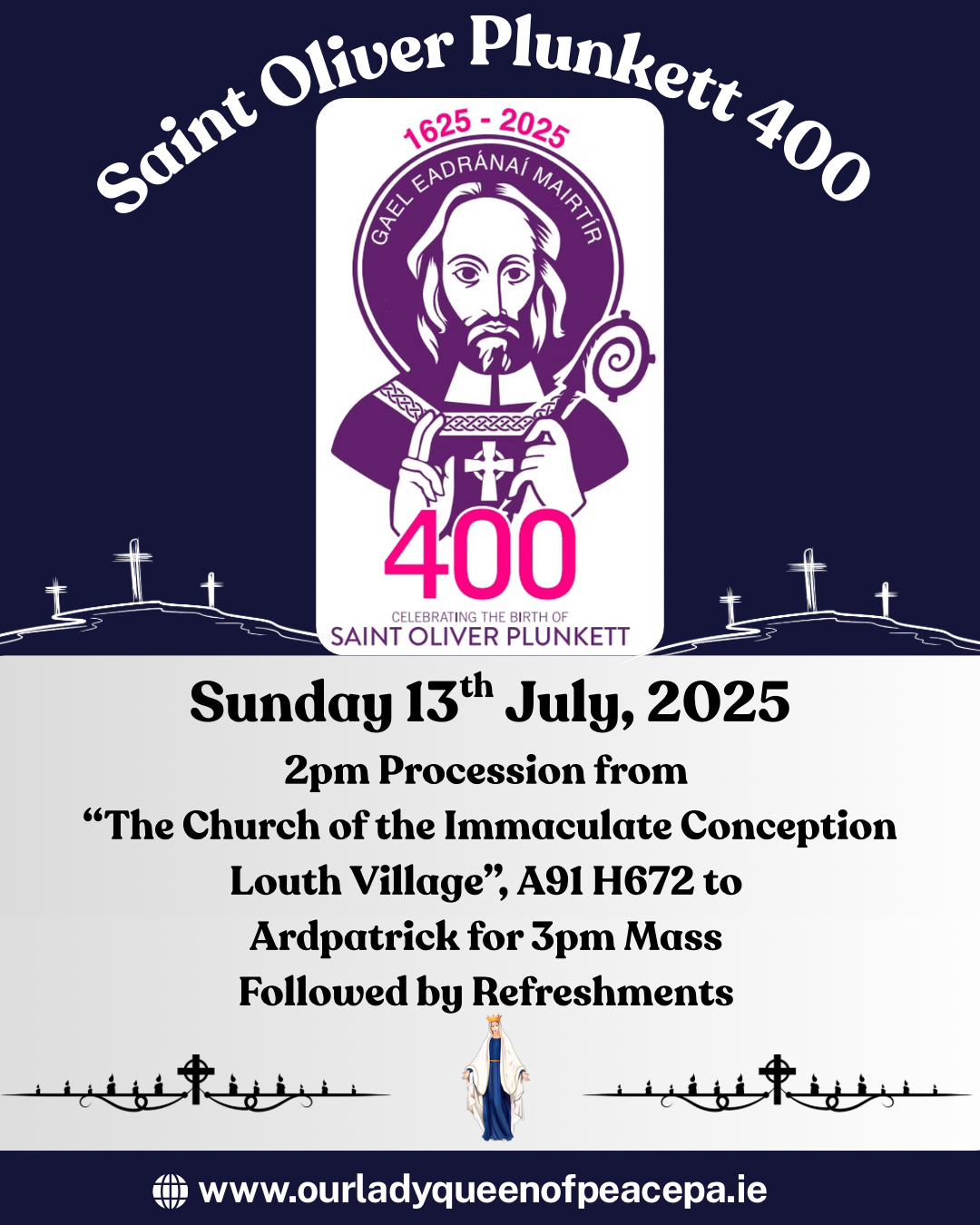
It has been noted that many of the significant events in the life and story of St. Oliver Plunkett took place on the 1st day of the month.
He was born 400 years ago on 1st November 1625 in Loughcrew near Oldcastle, Co. Meath, son of John Plunkett and Thomasina Dillon. On both sides the family was closely connected to the Anglo-Norman nobility of The Pale.
He grew up speaking both English and Irish. He received his early education up to the age of 16 at the hands of his cousin, Capuchin priest Dr Patrick Plunkett. At age 22 he set out for Rome to study for the priesthood. He sailed from Waterford in the company of Fr Pier Francesco Scarampi who had been Papal Envoy to the Confederate Catholics of Ireland.
This so-called Confederation of Kilkenny was an attempt in the 1640’s to unite the Old English of the Pale and the towns, on the one hand, and the Gaelic Irish on the other in defence of their common Catholic faith. It was to end sadly in bitter failure and in ultimate military and political defeat by the forces and policies of Oliver Cromwell.
Oliver Plunkett was destined to spend the next 22 years in Rome. He was accepted into the Irish College and studied at the Jesuit University. On 1st January 1654 he was ordained to the priesthood by Bishop Anthony MacGeoghegan, a member of the Franciscan Order who had been appointed Bishop of Meath but was unable to return to Ireland.
He continued his studies and gained a doctorate in Theology and Canon Law. In 1657 he was appointed Professor of Theology and Apologetics in the College of Propaganda Fide. Because of the prolonged persecution of the Catholic Church in Ireland, the Roman Congregation of the Propagation of the Faith had responsibility for administering the affairs of the Irish Church.
In March 1669 the then Archbishop of Armagh, Dr Edmund O’Reilly, died in exile in Saumur in France. Oliver Plunkett was appointed to succeed him and immediately set out for Ireland to take up his appointment. He travelled through Austria, Germany and Netherlands to present-day Belgium where he was consecrated bishop in Ghent on 1st December1669. He arrived in Ireland via Ostend, London and Holyhead on 10th March 1670, disguised as William Browne, an army captain.
He immediately threw himself with great energy and zeal into the work of shepherding a harassed and dejected flock. He based himself in North Louth, living in Ballybarrack in his early years and then here at Ardpatrick. “The house I lived in”, he said at his trial, “was a little thatched house wherein was only a little room for a library, which was not seven feet high”. In both locations he had a small church. We are privileged today to be celebrating Mass in this very place where St Oliver said Mass and administered the sacraments.
Because of the legal strictures against the Catholic Church and the uncertain and fickle nature of the delicate political situation, the few Catholic bishops that were left in Ireland had to carry out their ministry to their flock with great tact, caution and discretion. Oliver Plunkett was not found wanting.
For the next nine and a half years he was totally engaged as a pastoral bishop.
– He is said to have ordained over 200 priests, the greater number of them here at Ardpatrick. One of the most famous was Patrick Donnelly who would later become Bishop of Dromore and be celebrated in folklore and song as “the bold Phelim Brady, the Bard of Armagh”.
– He confirmed thousands and thousands of people. He was conscious that most districts would not have seen a bishop for at least a generation. He wrote that people would sometimes walk 12 miles to receive Confirmation, among them men and women of 30 or 40 years of age and even bearded men of 60.
– He set up schools in Drogheda to educate the Catholic youth and to provide training at home in Ireland for priests.
– He set about reforming and disciplining the clergy after decades of upheaval and disarray.
– He dealt sympathetically with the problem of the so-called Tories or Raparees. These were mainly members of the old Gaelic noble families dispossessed of their ancestral lands who now lived as outlaws preying on the new settlers and on travellers. Their activities and the punitive measures of the authorities against them brought much trouble and suffering on their own communities as well. Oliver Plunkett was instrumental in persuading many of them to accept pardon from the government and to go into voluntary exile in the interests of peace and the common good.
– He convened synods and assemblies of the clergy to reorganise the structures of a battered Church, including a provincial synod held here at Ardpatrick in1678.
– He adjudicated between the conflicting claims of Franciscans and Dominicans concerning the ownership of some long-abandoned religious houses and friaries (including Carlingford) and the right to collect from the faithful in certain places.
– He cultivated good relations with the government, with protestants and with those in positions of power and influence.
All of this activity was motivated by a single-minded devotion to his duty as a pastor, a shepherd of the flock.
Some of the time he was able to move about freely and fairly openly. But much of it was spent in disguise, in hiding and on the run. He endured periods of great hardship and of physically suffering, not least from the harsh weather. He saw his beloved schools closed and destroyed after just three years. He had also made enemies.
From the outset there were those in the Gaelic northern part of the diocese and in Gaelic Ulster as a whole who were opposed to his appointment on the grounds that he was a Palesman and particularly a Meath man. Inter-county football rivalry aside, it is difficult for us now at a remove of three and a half centuries to understand and appreciate the depth of that particular historic antagonism. Indeed it is a measure of Oliver Plunkett’s worthiness as a pastor that he so quickly won the acceptance and respect of the vast majority of the clergy in both parts of the diocese – in the parishes of Louth on the one hand and of Armagh, Tyrone and Derry on the other.
His reforming zeal had made enemies of those priests whom he had censured and suspended from their parishes on account of flagrantly unpriestly lifestyle and behaviour.
His decision in favour of the Dominicans over the Franciscans in their dispute concerning ownership of religious houses and the traditional right to collect money in certain locations was deeply unpopular and provoked bitter resentment.
It is a sad fact that of the nine prosecution witnesses who appeared at his trial to give evidence against him, four were priests – two diocesan and two Franciscan. Three of these had been censured by him.
One of them, Franciscan Friar John Mac Moyer, in a statement recalled that when he returned from the continent in 1674 he had called to Archbishop Oliver here at his house in Ardpatrick to receive faculties from him to administer the sacraments and was appointed by him as curate in the parish of Killeavy.
When the anti-catholic mania engendered by the Popish Plot in England turned to Ireland in search of a high-profile target, there was no shortage of Irish Catholic laymen and priests whose evidence could be bought by either promise of pardon for previous crimes or by payment of a bribe to bring the Catholic Primate of All-Ireland to the gallows.
Oliver Plunkett, who in his pastoral, spiritual and sacramental ministry to his flock had been so studious in avoiding any involvement in political matters, was charged with treason. He was accused, among other things, of plotting a French invasion of Ireland by landing a French army at Carlingford.
To ensure his conviction, his trial was transferred from Dundalk and then Dublin to London where the jury would have no knowledge of either his character or that of the witnesses against him. Indeed he stated that he would have had total confidence in the verdict of an all-protestant jury in Dundalk. The court in Westminster Hall did not even afford him enough time to bring over witnesses from Ireland for his defence.
The jury retired for only a quarter of an hour. When the foreman announced that the verdict was Guilty the prisoner proclaimed “Deo Gratias” – Thanks be to God.
The judge donned the black cap before pronouncing sentence of death: “And therefore you must go hence to the place from whence you came, that is, to Newgate Prison. And from thence you shall be drawn through the city of London to Tyburn. There you shall be hanged by the neck but cut down before you are dead. Your bowels shall be taken out and burnt before your face. Your head shall be cut off and your body be divided into four quarters, to be disposed of as his Majesty pleases. And I pray God to have mercy on your soul.”
Courage had always been one of Oliver Plunkett’s outstanding qualities but his calm courage during the last fortnight in Newgate Prison as he awaited the carrying out of the death sentence amazed even himself. He wrote about it to his former secretary in Rome: “Sentence of death was passed against me on the 15th without causing me any fear or depriving me of sleep for a quarter of an hour. I die most willingly. And being the first among the Irish, I will teach others, with the grace of God, by example not to fear death. But how am I, a poor creature, so brave seeing that my Redeemer began to fear, to be weary and sad, and that drops of his blood ran down to the ground? I have considered that Christ, by his fears and passion, merited for me to be without fear.”
On 1st July 1681 he died a martyr’s death at Tyburn, forgiving his enemies and praying for his accusers.
It wasn’t until St Patrick’s Day 1918 that the Church’s official Declaration of Martyrdom was pronounced in the presence of Pope Benedict XV.
He was solemnly beatified in St Peter’s Basilica in 1920 and revered thereafter as Blessed Oliver.
The miracle that opened the way to his canonisation occurred in Italy in 1958 on 1st April. Signora Giovanna Martiriggiano had been brought to hospital in Naples suffering from rupture of the womb. In the operating theatre it was found that she had developed “incurable necrotic inflammation of the bladder”. She was moved to a side ward to die. An Irish Medical Missionary of Mary, Sr Cabrini Quigley from Buncrana, Co.Donegal, who was on duty placed a picture of Blessed Oliver on her pillow. She also arranged that Giovanna’s husband and the community of sisters would pray a night vigil through the intercession of Blessed Oliver for a miraculous cure. Before morning the patient unexpectedly regained consciousness and showed signs of recovery which was maintained thereafter until she was restored to full health.
This good lady together with her husband was present with a great throng from Ireland at the ceremony of canonisation of St Oliver Plunkett carried out in St Peter’s Basilica, Rome by Pope Paul VI on Sunday 12th October 1975.
Today here at Ardpatrick, where St Oliver lived and ministered, we repeat his words: Deo Gratias – Thanks be to God.
We give thanks to God
– for his good and holy life
– for his tireless ministry as shepherd of the flock entrusted to him
– for his witness to Christ in charity
– for his fidelity unto death.
And as we pray to the Lord for the good and well-being of the Irish Church in our own time, particularly here in our diocese of Armagh and in our local parishes, we confidently ask the intercession of our sainted archbishop:
St Oliver Plunkett, bishop and martyr, pray for us. Amen.
Recent Activities
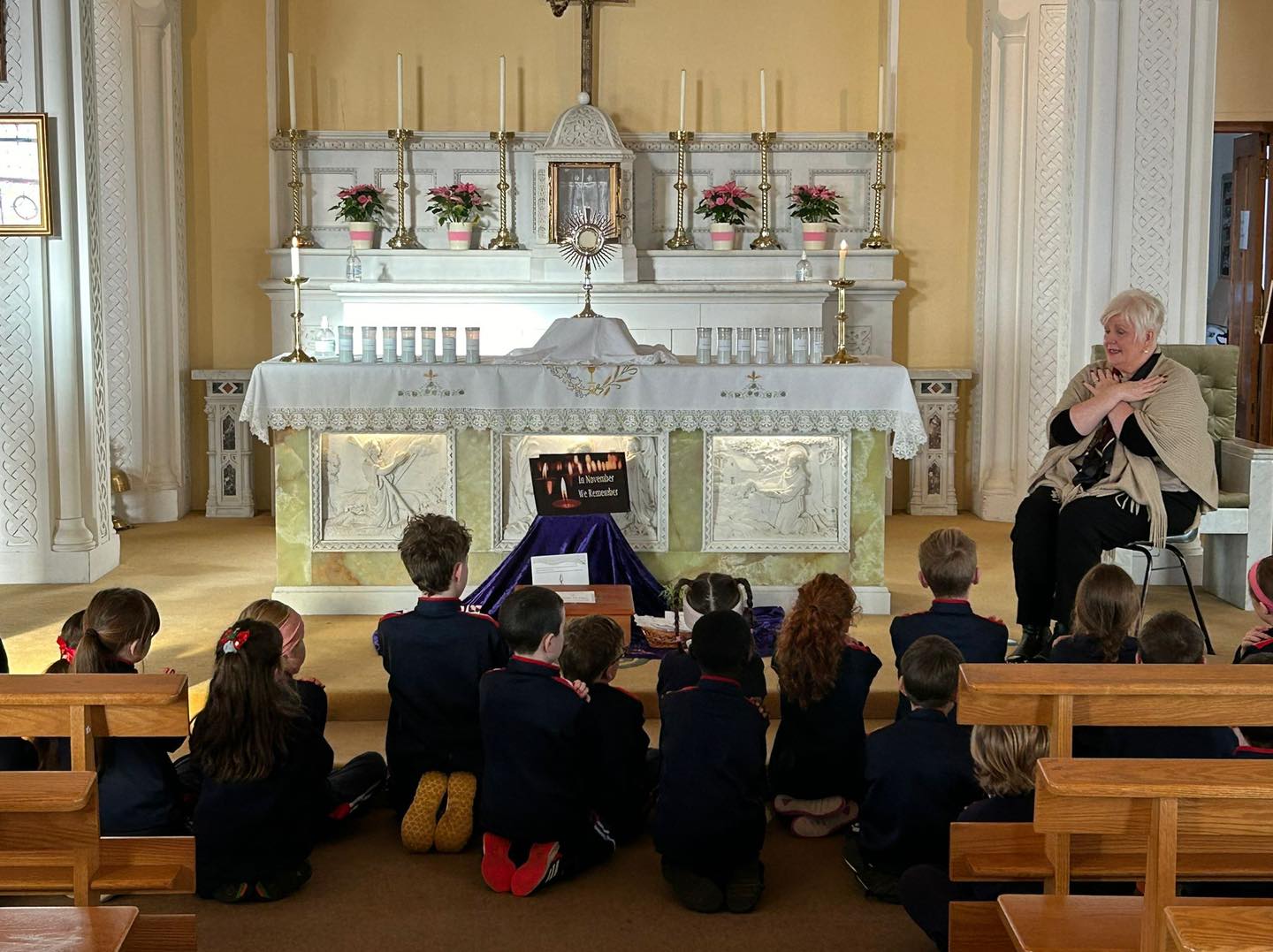
On 25th November we had a beautiful Children of the Eucharist (COTE) gathering in the parishes of Knockbridge and Kilkerley ✝️ Led by founder Antoinette…
Read More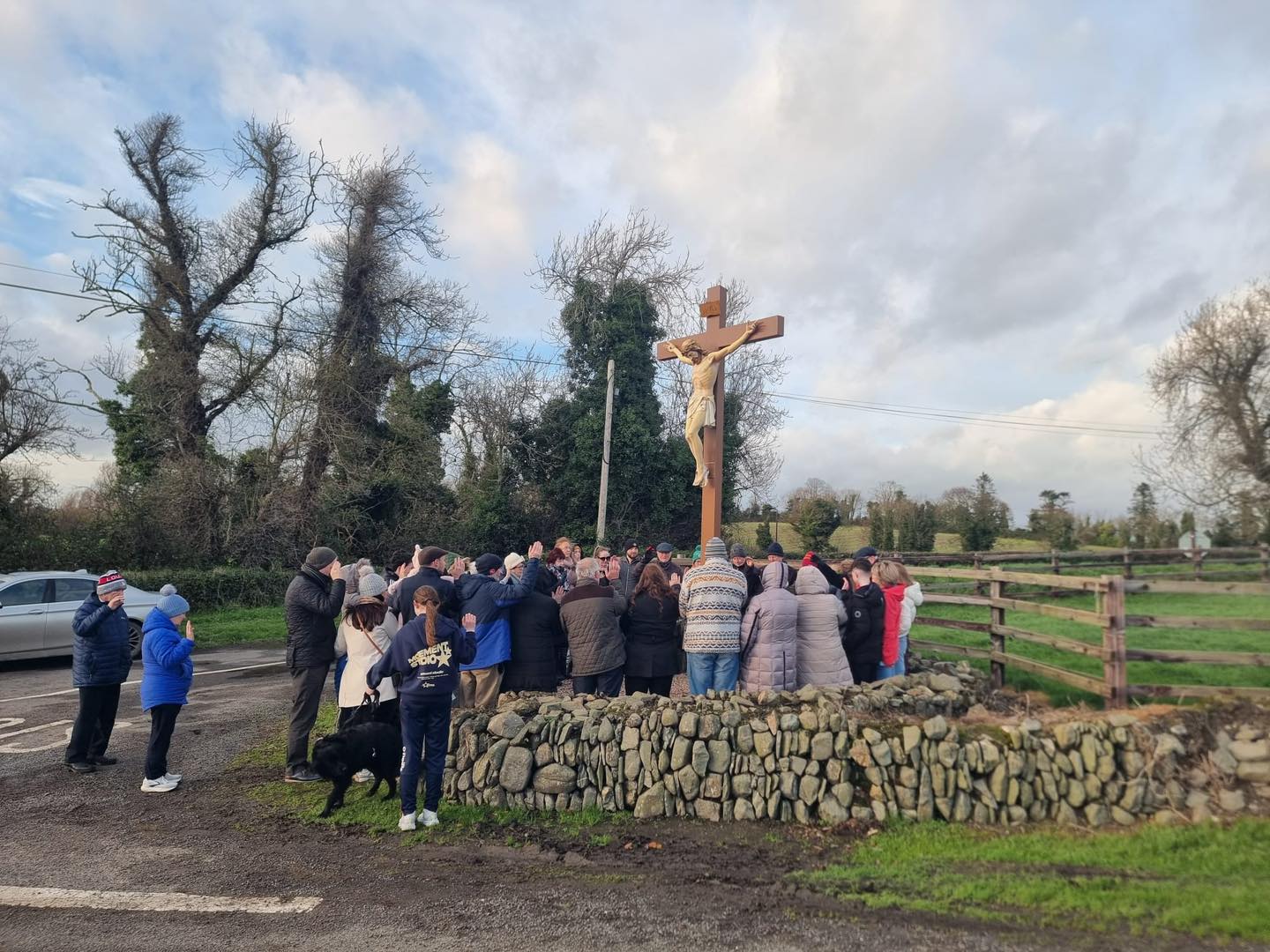
Darver & Dromiskin Parish – Blessing of the Cross at the Five Cross RoadsSunday 23rd November, on the Feast of Christ the King,…
Read More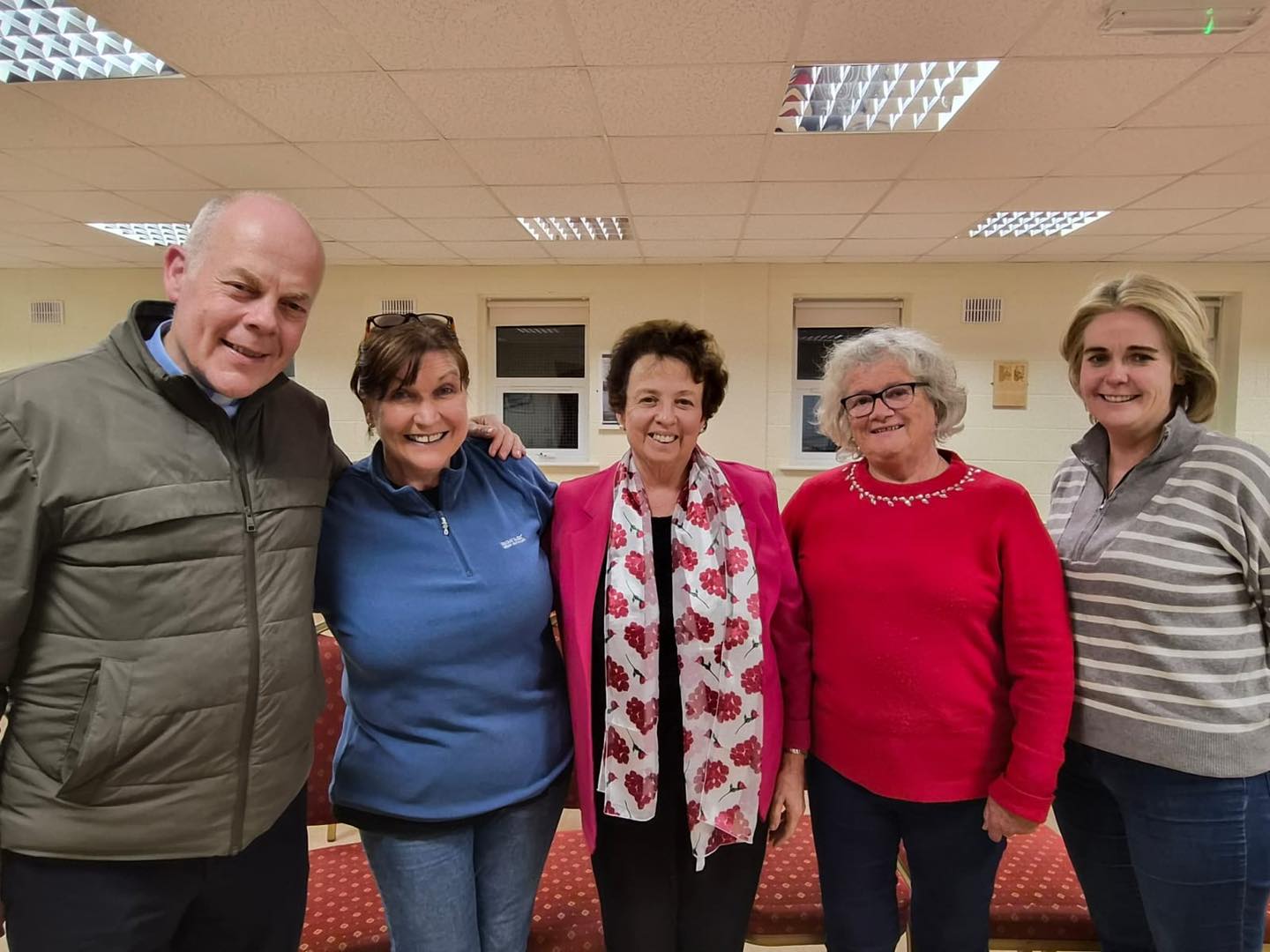
What a wonderful evening we had! 28 participants joined together for our choir workshop, beautifully facilitated by Sr. Marie Dunne. It was a truly…
Read More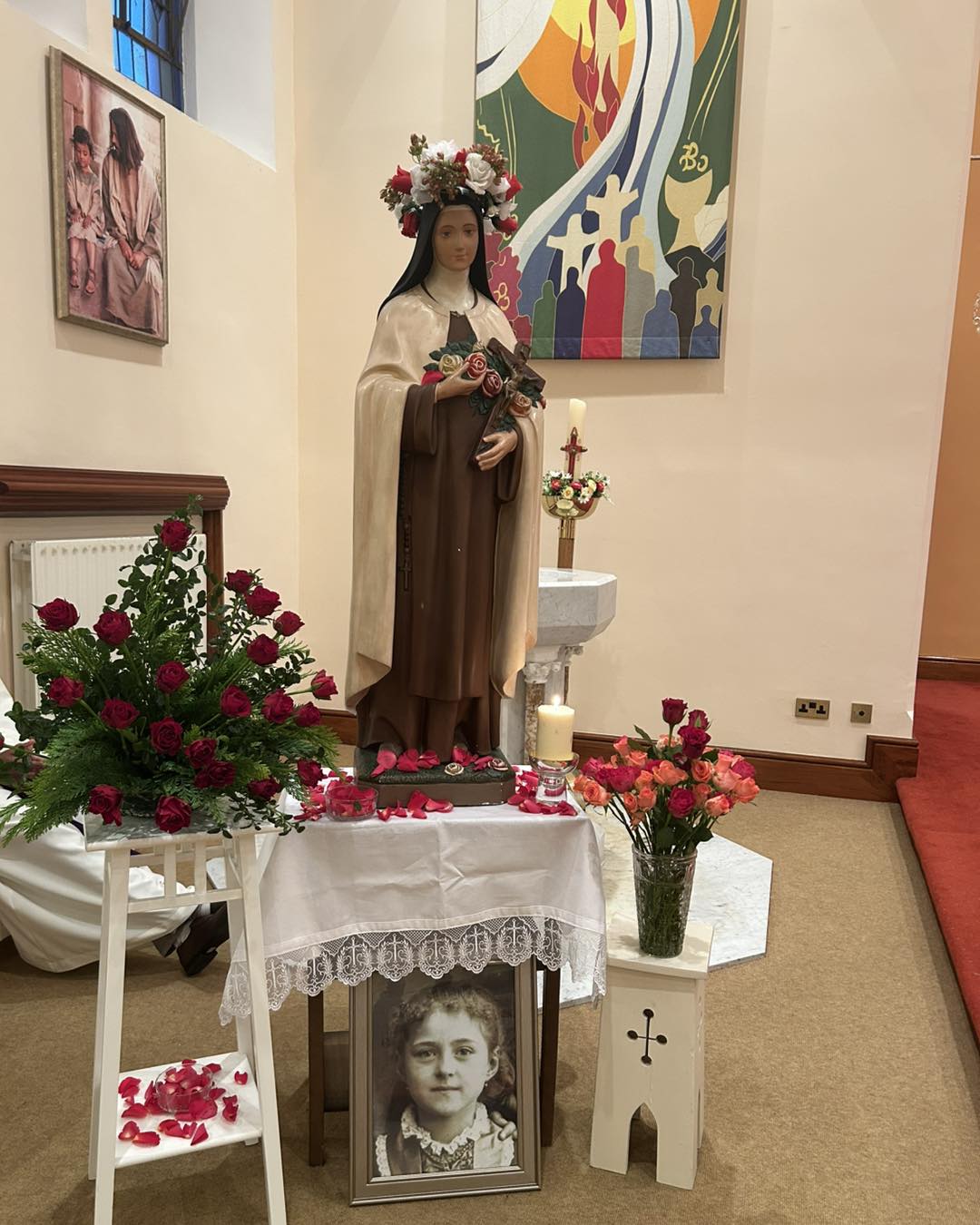
We extend our heartfelt thanks to all who joined us in prayer and celebration during this year’s Triduum in Kilkerley, marking the 100th anniversary of…
Read More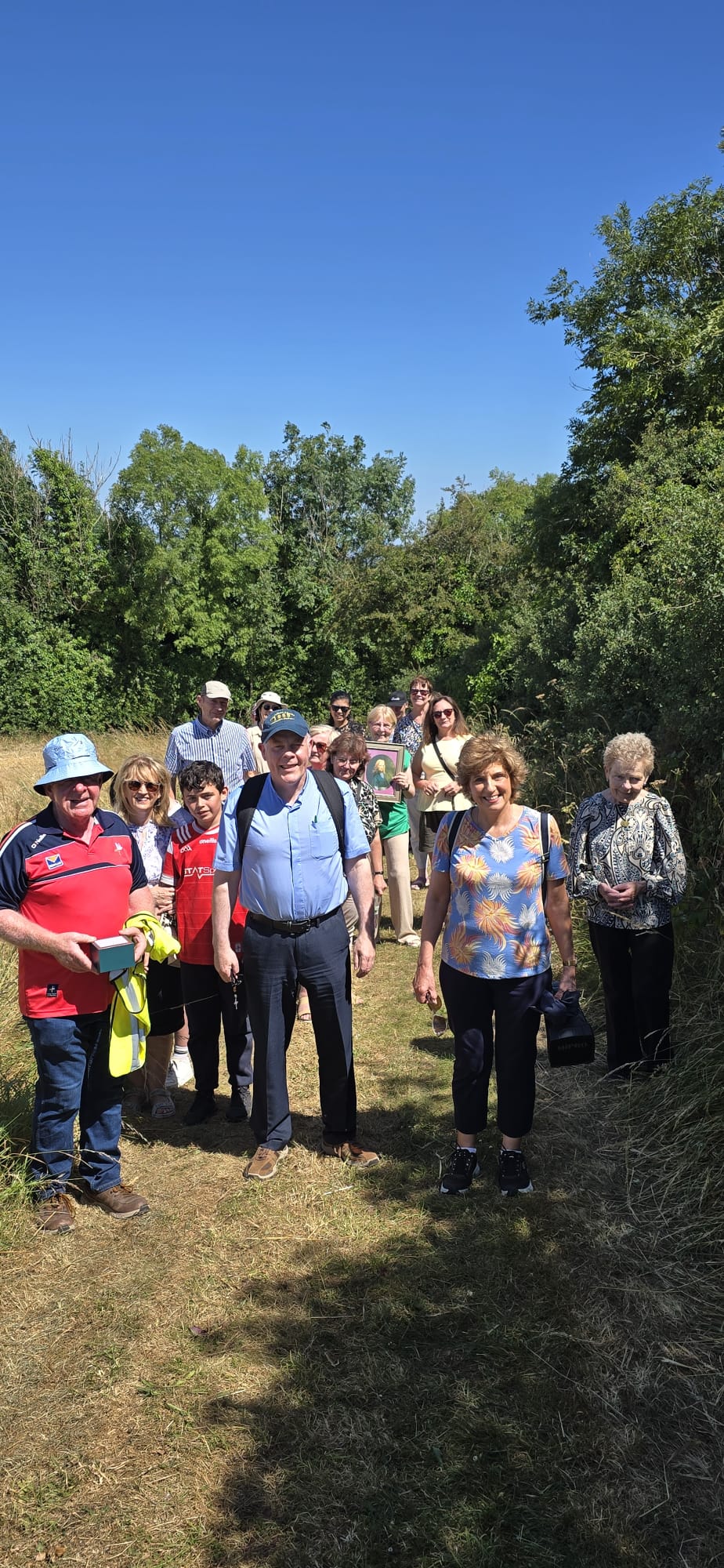
Read More
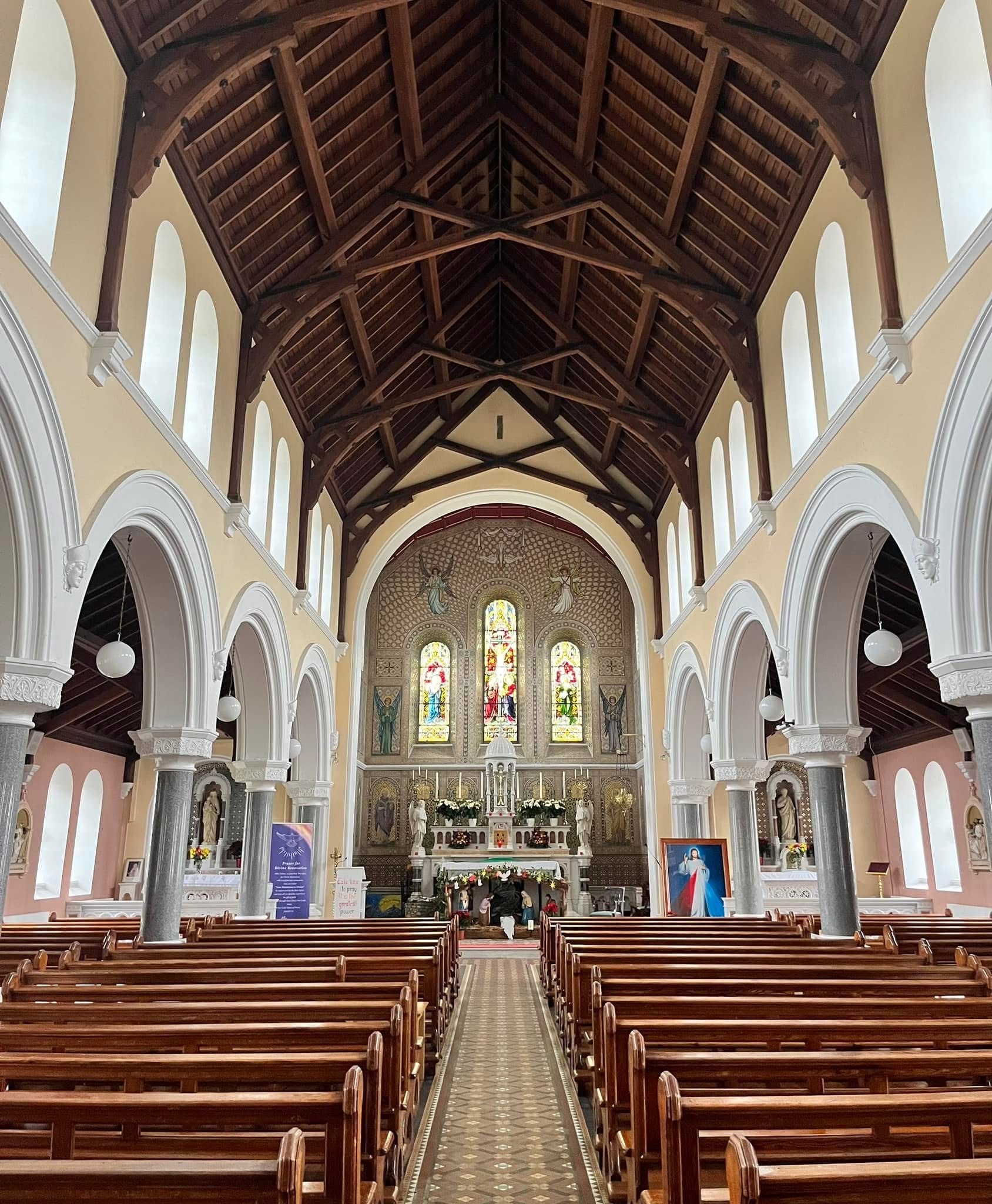
Read More

Read More
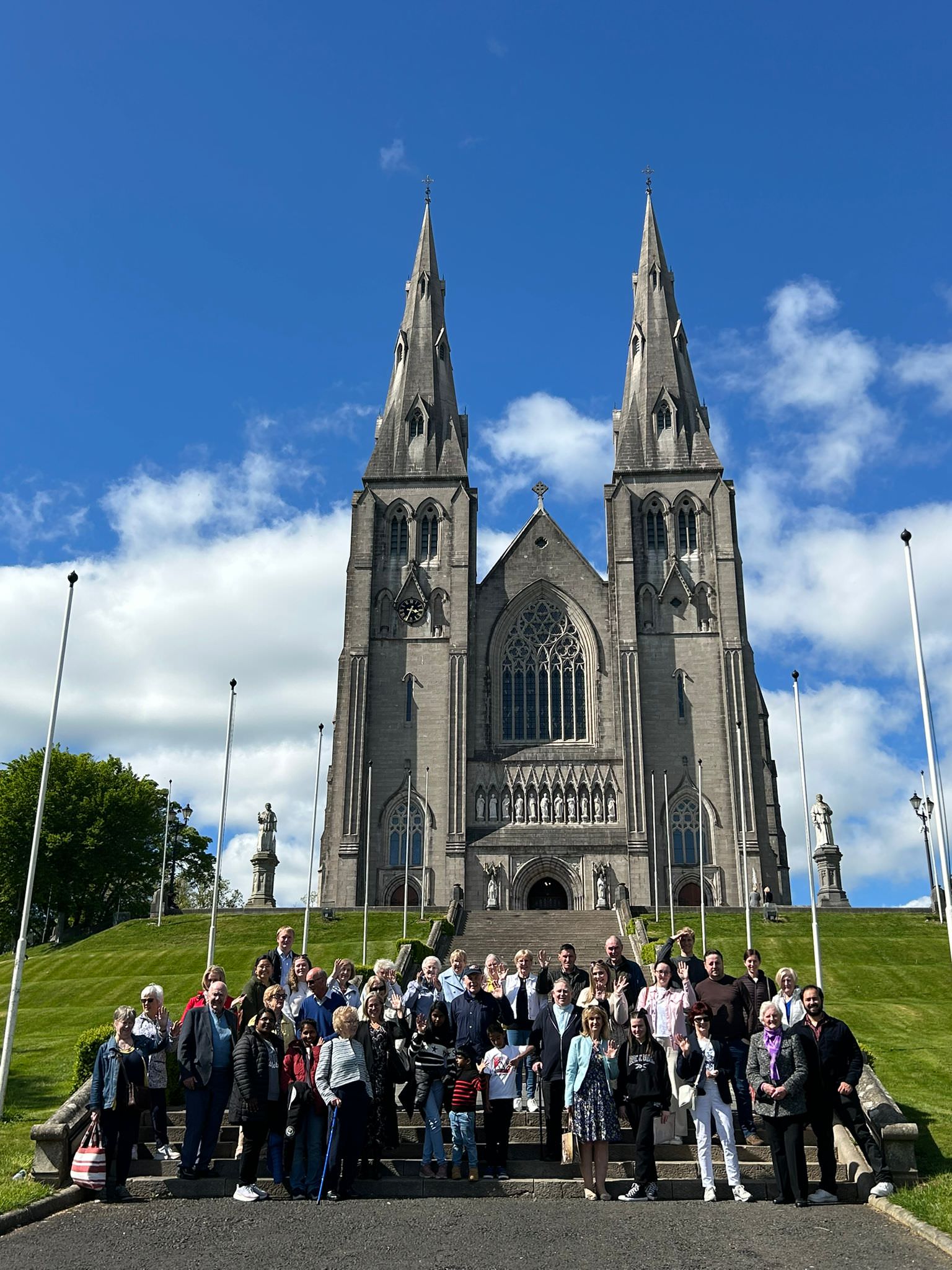
Read More